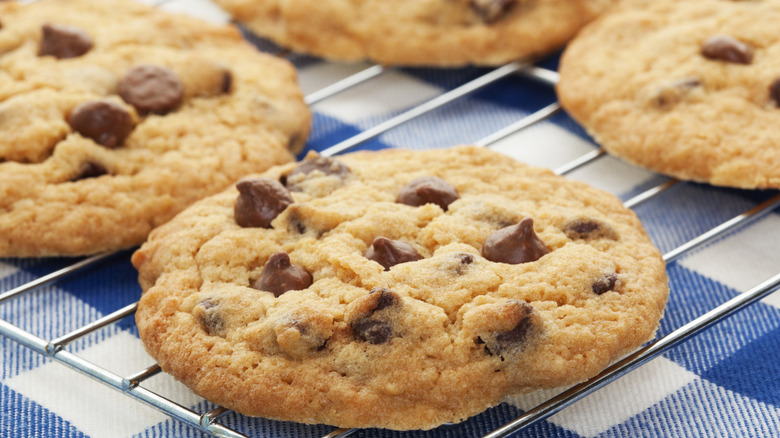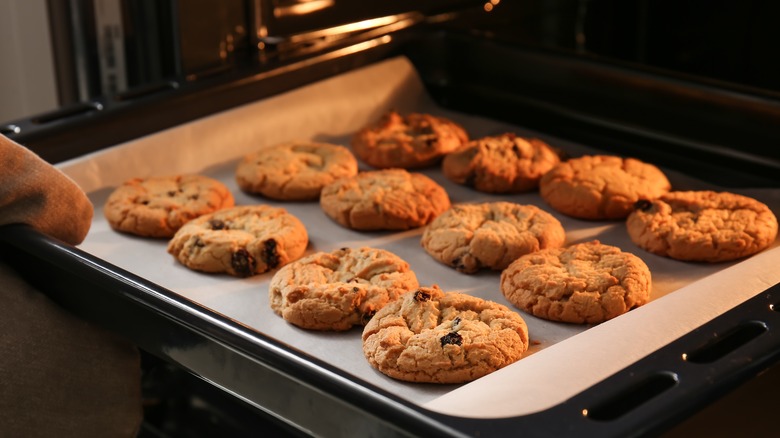The Amount Of Sugar You Add To Cookies Will Affect The Final Outcome
In the world of baking, few ingredients hold as much power as sugar. It's not just about sweetness; sugar plays a pivotal role in determining the spread and texture of cookies. As any home baker knows, the amount and type of sugar can make or break your batch. Knowing a bit about the fascinating science of sugar will benefit your cookie outcome, so let's dive in.
When you use sugar in your cookie dough, you're not only adding sweetness but also moisture, due to its hygroscopic properties. This additional moisture results in cookies that spread more during baking, giving you that classic thin and chewy texture. If you're aiming for thin, crisp cookies, a higher sugar content is the way to go.
Conversely, reducing the amount of sugar will yield cookies that are thicker and cake-like in texture. Less sugar means less moisture, resulting in cookies that hold their shape during baking, giving you a denser and more cakey consistency. So, if you prefer your cookies to be soft with a slight chew, consider reducing the sugar in your recipe.
This is how the type of sugar affects your cookies
Beyond the quantity of sugar, the type of sugar you choose also impacts your cookies. White sugar and brown sugar offer distinct textural differences. Using predominantly white sugar in your cookie dough will result in cookies that spread more and have a crisper texture. White sugar attracts moisture from the other ingredients, which slows gluten development, contributing to that classic thin and crispy finish. Brown sugar contains molasses, which adds moisture and imparts a caramel-like flavor. When you use brown sugar, your cookies will spread less and have a softer, chewier texture. The molasses in brown sugar creates a slightly thicker and denser cookie that's wonderfully tender.
The beauty of baking is that it allows for experimentation. Start with your favorite cookie recipe and consider making gradual adjustments to the sugar content. Keep in mind that other factors like baking time and temperature can also influence the outcome, so it's essential to approach baking with a curious and open mind.
In the end, the perfect cookie is a matter of personal preference. Some may yearn for the satisfying crunch of a thin, crispy delight, while others savor the tender embrace of a soft, chewy morsel. Whatever your cookie desires may be, remember that sugar is a big part of the sweet science behind it all, allowing you to tailor your treats to your exact liking.

